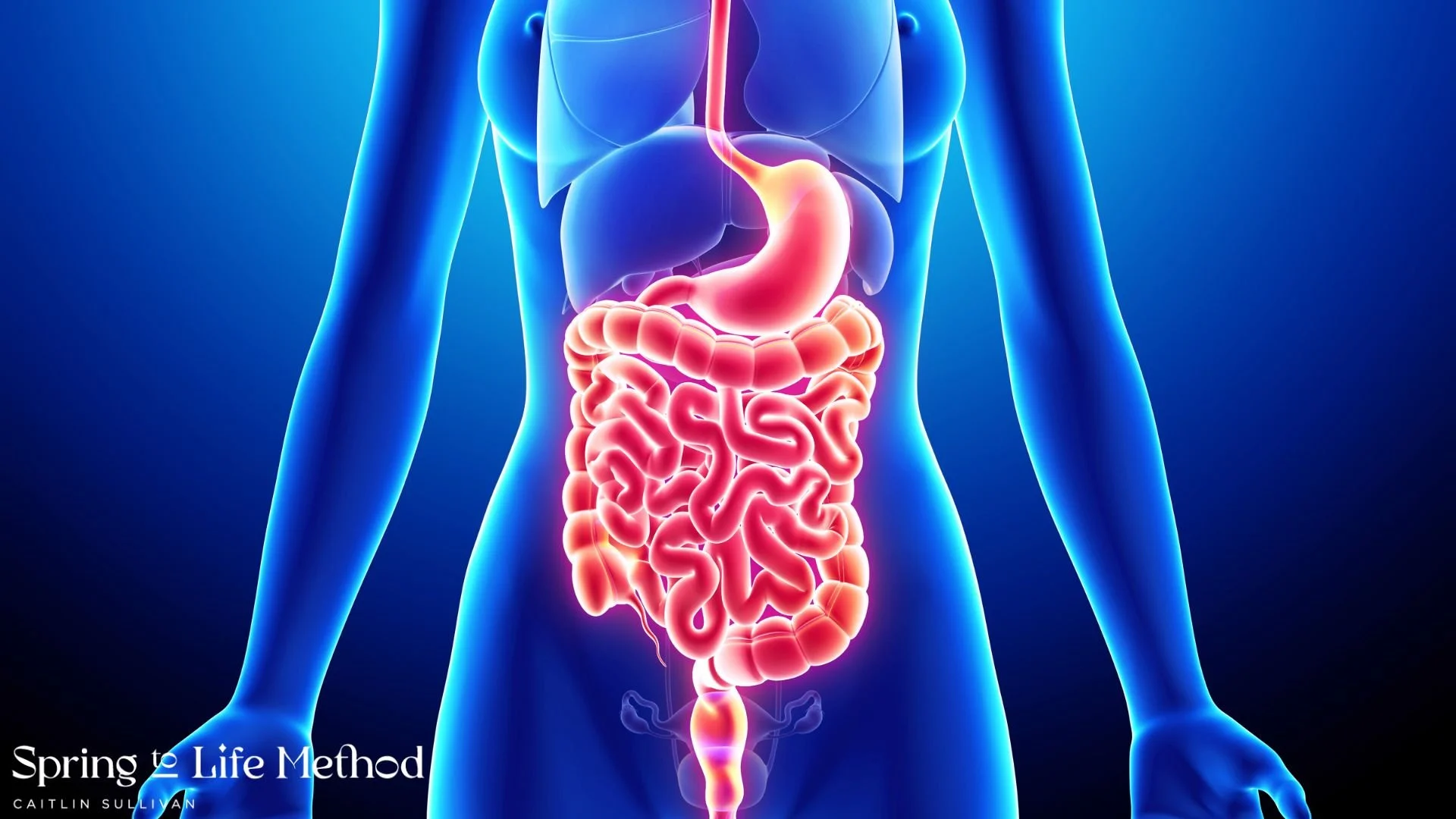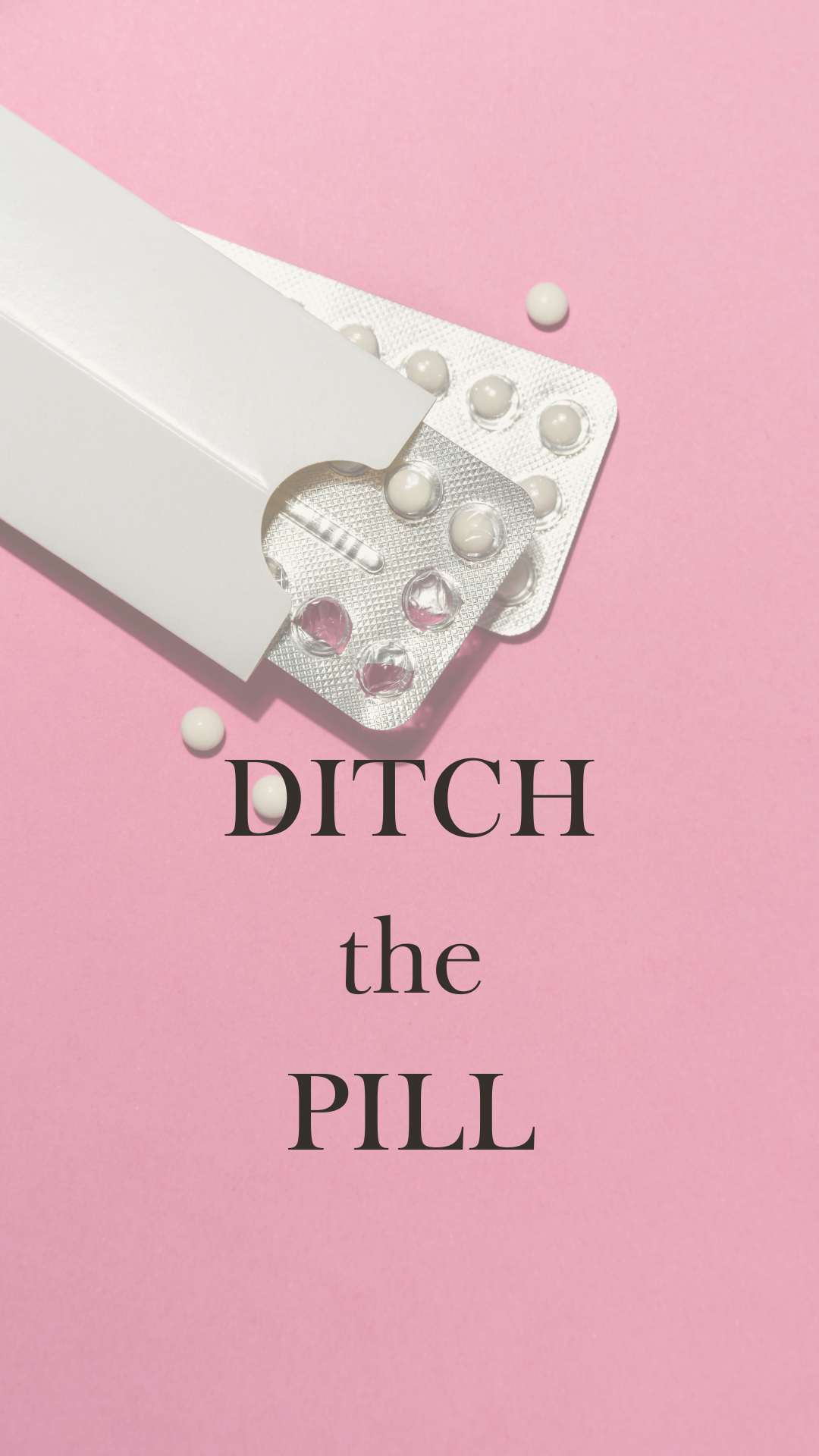Your Gut on the Pill: How Hormonal Birth Control Impacts Digestion, Hormones, and Overall Health
If you’re like me, you may have accepted — and even gotten used to — annoying symptoms like bloating, IBS, recurrent yeast infections, inflammation, migraines, food sensitivities, or stubborn skin rashes. Maybe you chalked it up to getting older, or simply “being a woman.”
But here’s something you probably didn’t consider: your hormonal birth control could be to blame.
It’s time to take a closer look.
Hormonal contraceptives (HCs) have a profound effect on your gut microbiome, which influences nearly every system in your body. Since everything comes back to the gut, it’s no surprise that long-term use of hormonal birth control can disrupt digestion, mood, immunity, and even your menstrual cycle.
Let’s dive into how the pill (and other forms of hormonal contraception) impact your gut — and more importantly, what you can do about it.
The Gut–Hormone Connection
Your gut is home to trillions of bacteria that regulate digestion, immunity, metabolism, and hormone balance. When this ecosystem is healthy, you feel energized, resilient, and in sync with your body. When it’s disrupted, everything from your skin to your brain to your menstrual cycle feels the effects.
Hormonal contraceptives alter this delicate balance in three main ways:
They disrupt the gut microbiome.
They deplete essential vitamins and minerals.
They burden your liver, the body’s detox powerhouse.
Gut health affects overall health
1. Hormonal Birth Control Disrupts the Gut Microbiome
Research shows that HCs reduce the diversity of beneficial bacteria in your gut. Over time, this imbalance can lead to intestinal permeability (also known as “leaky gut syndrome”), where undigested food particles and toxins slip into the bloodstream. Your immune system reacts with inflammation — which can show up as digestive discomfort, food sensitivities, skin rashes, or mood swings.
Another consequence? Estrogen metabolism gets disrupted. Normally, healthy gut bacteria help break down estrogen so it can be eliminated through stool. But when the microbiome is compromised, estrogen gets reabsorbed instead. This re-circulation can contribute to estrogen dominance and conditions like:
Heavy, painful periods
PMS that feels unbearable
Polycystic Ovarian Syndrome (PCOS)
Endometriosis symptoms
In short, if your gut health is off, your hormones don’t stand a chance at balance.
2. Hormonal Birth Control Depletes Essential Nutrients
The pill doesn’t just alter your gut bacteria — it also interferes with nutrient absorption. Over time, deficiencies can develop that underlie many “normal” symptoms women are told to accept. Here are some of the most impacted nutrients:
Folate → Essential for fertility and pregnancy health. Low folate can affect ovulation and fetal development. Food sources: liver, eggs, organ meats. For supplements, choose methylated folate for better absorption.
Vitamin B6 → Supports mood, cervical mucus, and hormone regulation. A deficiency can worsen PMS and increase risk of depression. Found in red meat, seafood, chickpeas, bananas, and sauerkraut.
Magnesium → A powerhouse mineral that calms the nervous system, supports sleep, reduces inflammation, and helps detox estrogen. Best food sources: pumpkin seeds, dark chocolate. Because soils are depleted, supplementation (like Mellö from Ned) may be necessary.
Zinc → Critical for ovarian function and ovulation. Helps reduce inflammation and regulate stress hormones. Rich in red meat and shellfish.
Selenium → Vital for thyroid function. A deficiency may increase risk of autoimmune thyroid issues. Found in Brazil nuts, seafood, and dairy.
Vitamins C + E → Antioxidants that protect the thyroid and reduce oxidative stress. Sources include citrus fruits, nuts, seeds, and tomatoes.
Vitamin A → Needed for ovulation, implantation, and healthy pregnancy. True vitamin A comes from animal foods like beef liver (not just beta-carotene from plants).
When your body is depleted in these nutrients, you may notice worsened PMS, fatigue, mood swings, skin issues, or even fertility struggles down the road.
A whole-foods diet can help replenish nutrients depleted by hormonal contraceptives
3. Hormonal Birth Control Puts Extra Stress on the Liver
Your liver plays a central role in detoxification. It filters everything from alcohol and caffeine to environmental toxins and synthetic hormones. To do this effectively, it requires steady supplies of B vitamins, vitamin C, selenium, glutathione, and amino acids.
Because HCs deplete many of these very nutrients, your liver ends up working overtime without enough resources. The result? Hormones — including estrogen — recirculate in the body instead of being efficiently cleared. This contributes to estrogen dominance, stubborn PMS, and systemic inflammation.
So, What Can You Do?
If you’re not ready (or able) to ditch the pill yet, don’t worry — there are still powerful ways to support your gut and hormones right now.
1. Take a Quality Probiotic
A daily probiotic helps restore beneficial bacteria and promotes regular bowel movements (crucial for eliminating excess estrogen). I recommend Ora Organics Lady Bugs: Women’s Probiotic, available in my Fullscript Dispensary for 15% off.
2. Eat Enough Fiber
Aim for at least 25 grams daily from whole food sources like vegetables, beans, fruit, and seeds. Fiber feeds good bacteria, supports detox, and keeps you regular (yes, you should be going at least once — ideally twice — per day!).
3. Replenish Key Nutrients
Whole foods are the best starting place, but supplementation is sometimes necessary, especially if deficiencies are present. Ask your provider about a nutrient absorption blood panel. I’ve also created a baseline Ditch the Pill Protocol in my Fullscript Dispensary to make repletion easier.
4. Support Your Liver
Help your liver do its job by minimizing toxin exposure and eating foods that assist detoxification. Practical steps include:
Choosing clean personal care and cleaning products
Reducing alcohol and processed foods
Eating cruciferous vegetables (like broccoli, Brussels sprouts, and kale), which contain I3C — a compound that helps metabolize estrogen efficiently
Herbs like milk thistle can reduce inflammation and promote cell repair in the liver
Do You Need to Ditch the Pill?
The decision to stop hormonal birth control is deeply personal, and sometimes complicated. Even if you’re not ready to come off the pill, supporting your gut and replenishing depleted nutrients will dramatically improve your quality of life.
But if you are thinking about stopping, know this: you don’t have to do it alone. The symptoms you’ve been told are “normal” — bloating, painful periods, anxiety, chronic yeast infections — are actually signs your body is asking for support.
You deserve to feel vibrant, energized, and in sync with your natural cycle.
Final Thoughts
Hormonal contraceptives can mask problems in the short term but create deeper imbalances over time. By focusing on gut health, nutrient repletion, and liver support, you can ease many of the uncomfortable symptoms you’ve been living with — and pave the way for a smoother transition if and when you decide to ditch the pill.
If you’re ready for deeper guidance, check out my full resource:
👉 Ditch the Pill: A Roadmap to Reclaiming Your Hormonal Health
Your body — and your gut — will thank you.
Quitting hormonal birth control can feel like stepping into the unknown. Will you face acne, irregular cycles, or mood swings? How do you advocate for yourself with your doctor? With Ditch the Pill, you’ll get a clear, step-by-step roadmap to navigate the transition—without the stress.
This 70+ page eBook, paired with a powerful workbook, gives you the tools to:
Understand Your Hormones: Learn exactly what happens in your body when you stop the pill and how to prepare for the shift.
Know Your Bloodwork: Discover precisely which blood panels to request to assess your hormonal health and track your recovery.
Talk to Your Doctor: Get expert tips on how to confidently discuss getting off hormonal birth control with your healthcare provider.
Ease Symptoms: Tackle common challenges like acne, irregular periods, and mood changes with proven strategies.
Nourish Your Body: Explore hormone-friendly nutrition and lifestyle tips to detox and rebalance.
Track Your Progress: Use the included symptom tracker, meal planner, and cycle tracking template to stay in control.
Why Now?
Your hormonal health can’t wait. For just $9.00, you get everything you need to transition off the pill with ease. Grab it now and start your journey to hormonal freedom!
Get Your Copy Now for $9.00
Instant download. Secure checkout. 100% satisfaction guaranteed.
Still Hesitating?
We get it—stopping the pill can feel daunting. That’s why Ditch the Pill is packed with expert advice, including how to ask for the right blood panels and confidently talk to your doctor, to make the process smooth and empowering. You’ve got this!
Start Your Journey Today




